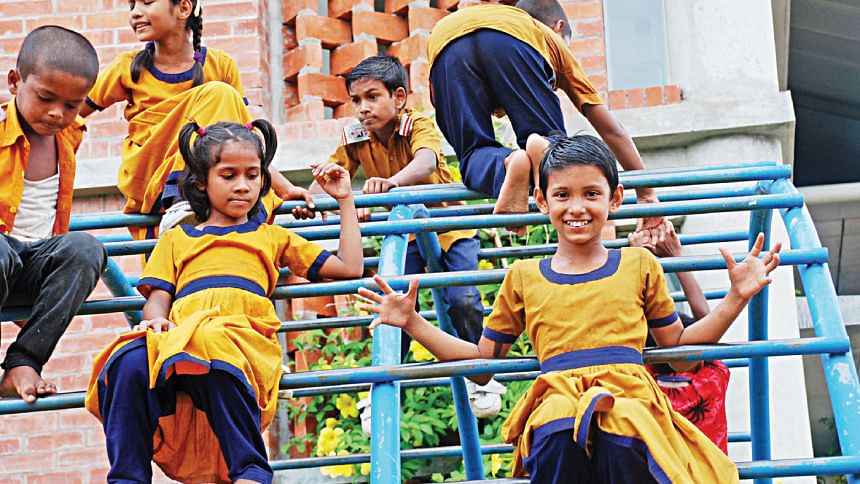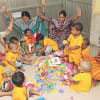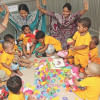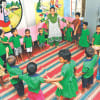Aastha, a safe haven for slum children

In the relentless pace of Dhaka, where surviving often means long hours of work, day-care centres have become a saviour for many families. Scattered throughout the city, they offer a haven for children, while parents plunge into their daily grind. But beyond this routine, a quieter revolution is happening -- a group of unsung heroes is nurturing a generation that often slips through the cracks.
Utsho Bangladesh, with their initiative, Aastha, a day care centre for children from the slums, stands out in this landscape with something uniquely transformative. At Aastha, children as young as six months to six years old are nurtured, educated, and protected. Across seven centres in Dhaka, Aastha serves as a place of care and foundation, shaping the futures of nearly 150 children, and giving them hope and the start they deserve.
The risks are immense for children growing up in vulnerable conditions, while left unattended, they could easily fall into dangerous paths, be exposed to unhealthy influences, or even become involved in illegal activities.
But Aastha steps in to change that narrative. A typical day at an Aastha begins at 8:00am, as children are dropped off by their parents. From breakfast to lessons, playtime to showers, and lunch, followed by a much-needed nap, these children are introduced to a routine that nurtures their bodies and minds.
Under the watchful eyes of in-charge personnel, caregivers, and supervisors, the children are taught more than just ABCs -- they learn how to dream, how to grasp the basics of reading and writing, and essential life lessons.
Momtaj Akther, who has been the in-charge of the Aastha Daycare Centre at Shanti Niketan for two years, says, "Even my child grew up here. I treat every child like my own."
But it's not just the children growing under the Aastha banner, their parents are learning too through training sessions which are helping them understand the importance of their children's care.
The beauty of Aastha's model lies in how deeply rooted these centres are in the community. Each day-care centre is independent, standing as a microcosm of sustainability, and managing its own funds and operations. It's not bound by foreign donors or flashy initiatives that fade once contracts end. For last 30 years since its foundation, Utsho's approach has been building resilience from within -- like a body developing its own immune system, strong enough to resist the discrimination and challenges surrounding it.
Mahbooba A Mahmood Leena, also known as Leena Apa, the visionary behind Utsho, says, "We are not dependent on foreign funding like typical NGOs. Our people are our funding source."
Contributions flow in from all corners -- one family donates rice, another brings vegetables, while someone else volunteers their time.
It's a mosaic of support, pieced together by those who believe in the cause. Even the smallest contributions, often unmeasurable by conventional standards are what keep Aastha's wheels running. As Leena notes, "Everyone wants to be part of a good initiative, no matter how small their role."
However, to keep these centres running smoothly, Utsho organises fundraising events. One such event is "UTSHO Sandhya 2024", a musical show on October 25 at the Krishibid Institution Bangladesh Complex. Artists like Masha Islam, Nandita, and Rituraj will perform in support of this cause.

 For all latest news, follow The Daily Star's Google News channel.
For all latest news, follow The Daily Star's Google News channel. 








Comments